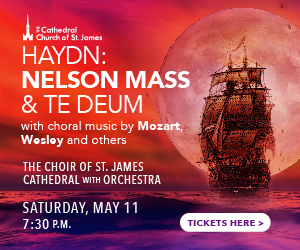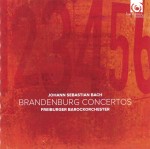 Quite a few years ago, frankly almost half a century if I care to do the math, I built my classical record collection by scouring the bargain bins on Yonge St. at Sam the Record Man and A&A Records. At the time it was possible to find some superb recordings for 99 cents to $1.99, including as I recall, my first exposure to Schubert lieder as sung by Dietrich Fischer-Dieskau, Boulez conducting the Domaine Musical Ensemble in works of Gilbert Amy and Anton Webern, Honegger symphonies performed by Ansermet and the Orchestre de la Suisse Romande and the Bartok Quartets with the Fine Arts Quartet (well, that 3-LP set may have been $3.99) to name just a few highlights. What takes me back to those memories is a new recording of the Bach Brandenburg Concertos featuring the Freiburger Barockorchester (Harmonia Mundi HMC 902176.77). My first recording of these iconic works came from those same bargain bins and inadvertently introduced me to the world of period performance practice in, as far as I know, one of its earliest incarnations. Featuring the Schola Cantorum Basiliensis on two Heliodor LPs this was an ear-opening, if not quite life-changing, event for me. I’d never heard anything like it before and I was hooked, although it would be a good many years before I figured out what it was that made it so special. Of course period performance is almost de rigueur these days, thanks in large part to the influence of the Schola which Paul Sacher founded in Basel in 1933, but back in the 70s it was quite a new idea to most of the musical world. Since that time as I say, historically informed performances abound and Toronto’s own Tafelmusik has played a major role in establishing this as the norm. Their own 1995 Juno award-winning recording of the Brandenburgs, recently re-released on their own Tafelmusik Media label (TMK1004CD2), is itself a benchmark against which others are to be measured. I’m glad to have the luxury of not having to choose between an embarrassment of riches and am simply able to enjoy them all. I’m happy to have had an excuse to revisit my favourite recordings – including the thrilling modern-instrument performance featuring the CBC Vancouver Orchestra under Mario Bernardi with soloists including Robert Aitken – thanks to this new release from Freiburg, which incidentally is just across the border from Basel. I particularly enjoyed the crisp attacks and well-balanced recording throughout the two discs, the wonderful (and wondrously in tune!) natural horns in the First Concerto and of special note, the harpsichord cadenza by Sebastian Wienand in the Fifth. This is a welcome addition to my collection.
Quite a few years ago, frankly almost half a century if I care to do the math, I built my classical record collection by scouring the bargain bins on Yonge St. at Sam the Record Man and A&A Records. At the time it was possible to find some superb recordings for 99 cents to $1.99, including as I recall, my first exposure to Schubert lieder as sung by Dietrich Fischer-Dieskau, Boulez conducting the Domaine Musical Ensemble in works of Gilbert Amy and Anton Webern, Honegger symphonies performed by Ansermet and the Orchestre de la Suisse Romande and the Bartok Quartets with the Fine Arts Quartet (well, that 3-LP set may have been $3.99) to name just a few highlights. What takes me back to those memories is a new recording of the Bach Brandenburg Concertos featuring the Freiburger Barockorchester (Harmonia Mundi HMC 902176.77). My first recording of these iconic works came from those same bargain bins and inadvertently introduced me to the world of period performance practice in, as far as I know, one of its earliest incarnations. Featuring the Schola Cantorum Basiliensis on two Heliodor LPs this was an ear-opening, if not quite life-changing, event for me. I’d never heard anything like it before and I was hooked, although it would be a good many years before I figured out what it was that made it so special. Of course period performance is almost de rigueur these days, thanks in large part to the influence of the Schola which Paul Sacher founded in Basel in 1933, but back in the 70s it was quite a new idea to most of the musical world. Since that time as I say, historically informed performances abound and Toronto’s own Tafelmusik has played a major role in establishing this as the norm. Their own 1995 Juno award-winning recording of the Brandenburgs, recently re-released on their own Tafelmusik Media label (TMK1004CD2), is itself a benchmark against which others are to be measured. I’m glad to have the luxury of not having to choose between an embarrassment of riches and am simply able to enjoy them all. I’m happy to have had an excuse to revisit my favourite recordings – including the thrilling modern-instrument performance featuring the CBC Vancouver Orchestra under Mario Bernardi with soloists including Robert Aitken – thanks to this new release from Freiburg, which incidentally is just across the border from Basel. I particularly enjoyed the crisp attacks and well-balanced recording throughout the two discs, the wonderful (and wondrously in tune!) natural horns in the First Concerto and of special note, the harpsichord cadenza by Sebastian Wienand in the Fifth. This is a welcome addition to my collection.
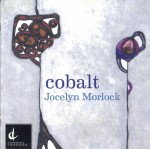 The Canadian Music Centre’s Centrediscs label is busier than ever it seems, and this month has three new releases featured in these pages. The one I have chosen for myself, Cobalt (CMCCD 20014), is an eclectic offering featuring mostly large-scale music by the chameleon-like Jocelyn Morlock performed by five different orchestras. The exception is a dark and brooding piano trio written for Duo Concertante (Nancy Dahn, violin and Timothy Steeves, piano) with guest cellist Vernon Regehr, Asylum, a tribute to and meditation on Schumann’s life and music. The opening track, Music of the Romantic Era, written for and performed by the Windsor Symphony, is a pastiche whose inspiration was the concern that classical music is disappearing from our lives. It would be fun to hold a contest to see how many sources of the familiar and almost-familiar phrases found therein can be identified. The title track is a sort of concerto grosso for two violins and orchestra, a lyrical reflection on the luminous cobalt blue of the night sky, the properties of cobalt the element (poisonous, magnetic and radioactive), and kobold, the mischievous goblin that inspired its name. Jonathan Crow and Karl Stobbe are the soloists with the National Arts Centre Orchestra under Alain Trudel. Disquiet is a short homage to Shostakovich which explores “a sense of oppression and urgency, such that I imagine would have been the perpetual emotional state of Shostakovich and his contemporaries.” The haunting work is performed by the CBC Symphony Orchestra, again under Trudel’s direction. Bramwell Tovey leads the Vancouver Symphony in the nature-inspired Oiseaux bleus et sauvages, a nod to Messiaen with some moments reminiscent of John Adams.
The Canadian Music Centre’s Centrediscs label is busier than ever it seems, and this month has three new releases featured in these pages. The one I have chosen for myself, Cobalt (CMCCD 20014), is an eclectic offering featuring mostly large-scale music by the chameleon-like Jocelyn Morlock performed by five different orchestras. The exception is a dark and brooding piano trio written for Duo Concertante (Nancy Dahn, violin and Timothy Steeves, piano) with guest cellist Vernon Regehr, Asylum, a tribute to and meditation on Schumann’s life and music. The opening track, Music of the Romantic Era, written for and performed by the Windsor Symphony, is a pastiche whose inspiration was the concern that classical music is disappearing from our lives. It would be fun to hold a contest to see how many sources of the familiar and almost-familiar phrases found therein can be identified. The title track is a sort of concerto grosso for two violins and orchestra, a lyrical reflection on the luminous cobalt blue of the night sky, the properties of cobalt the element (poisonous, magnetic and radioactive), and kobold, the mischievous goblin that inspired its name. Jonathan Crow and Karl Stobbe are the soloists with the National Arts Centre Orchestra under Alain Trudel. Disquiet is a short homage to Shostakovich which explores “a sense of oppression and urgency, such that I imagine would have been the perpetual emotional state of Shostakovich and his contemporaries.” The haunting work is performed by the CBC Symphony Orchestra, again under Trudel’s direction. Bramwell Tovey leads the Vancouver Symphony in the nature-inspired Oiseaux bleus et sauvages, a nod to Messiaen with some moments reminiscent of John Adams.
Perhaps the most curious work on the disc is Golden, written in memory of Morlock’s teacher Nikolai Korndorf and performed by the Pacific Baroque Orchestra and oboist Philippe Magnan. The piece starts with quiet percussive sounds and disjointed whispered phrases and gradually grows into dirge-like, quasi-medieval textures in the strings and solo oboe. The final piece Solace also found it’s inspiration in early music, Josquin’s Missa L’homme armé. The orchestra, the strings of the Vancouver Symphony, is divided into subgroups: an “early music” ensemble playing music based on Josquin’s mass; a group of “ethereal” violins playing long harmonies over top the tutti; and a concertante violin and cello. It is the soloists that are most prominent and while the background is based in medieval music, the soaring melody of the violin, echoed effectively by the cello, is to my ear quite reminiscent of Vaughan Williams’ The Lark Ascending in its quiet grandeur. All in all this is a wonderfully lyrical disc and a great reminder that we do have an important body of orchestral work in this country. Now, if we could just get our orchestras to play it more often… (I know I always say that, but that doesn’t make it any less true!)
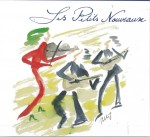 Another disc that took me back to the early days of building my record collection, specifically the discovery of Django Reinhardt, Stéphane Grappelli and the Quintet of the Hot Club of France, is a delightful eponymous disc by Les Petits Nouveaux (lespetitsnouveaux.bandcamp.com). There’s not much information included with the self-produced CD but surfing the web I have gleaned that this gypsy jazz group was formed in 2009 when Swedish guitarist Mikko Hildén was studying the manouche stylings of Django Reinhardt under the tutelage of Drew Jurecka at Humber College. Les Petits Nouveaux is currently a trio with another original member, Montreal violinist Aline Homzy and, since 2011, Toronto guitarist Andy Mac. The disc is mix of gypsy jazz standards (including Reinhardt’s gently swinging Douce Ambiance on which the group is joined by mentor Jurecka on bass clarinet) and original compositions, one from each member: Hildén’s El Cafecito, Homzy’s Siva Macka and Mac’s particularly idiomatic Ville Belle. At just a half an hour in length this disc falls somewhere between EP and full-length offering (and is priced online accordingly at just $7), but it serves as a satisfying introduction to the group, and to the idiom if you’re not familiar with it. A very effective treatment of Gene de Paul’s classic I’ll Remember April brings this little gem to a close.
Another disc that took me back to the early days of building my record collection, specifically the discovery of Django Reinhardt, Stéphane Grappelli and the Quintet of the Hot Club of France, is a delightful eponymous disc by Les Petits Nouveaux (lespetitsnouveaux.bandcamp.com). There’s not much information included with the self-produced CD but surfing the web I have gleaned that this gypsy jazz group was formed in 2009 when Swedish guitarist Mikko Hildén was studying the manouche stylings of Django Reinhardt under the tutelage of Drew Jurecka at Humber College. Les Petits Nouveaux is currently a trio with another original member, Montreal violinist Aline Homzy and, since 2011, Toronto guitarist Andy Mac. The disc is mix of gypsy jazz standards (including Reinhardt’s gently swinging Douce Ambiance on which the group is joined by mentor Jurecka on bass clarinet) and original compositions, one from each member: Hildén’s El Cafecito, Homzy’s Siva Macka and Mac’s particularly idiomatic Ville Belle. At just a half an hour in length this disc falls somewhere between EP and full-length offering (and is priced online accordingly at just $7), but it serves as a satisfying introduction to the group, and to the idiom if you’re not familiar with it. A very effective treatment of Gene de Paul’s classic I’ll Remember April brings this little gem to a close.
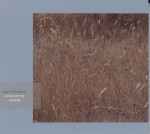 The final disc that has been in rotation on my system this month is a meditative project which is based in the song of Chassidic niggunim and Sephardic Jewish traditions. Song of the Grasses features Siach HaSadeh, a clarinet and double bass duo (Yoni Kaston and Joel Kerr) complemented with violin (Daniel Fuchs), cello (Gaël Huard), harmonica (Jason Rosenblatt) and oud (Ishmail Fencioglu) as the repertoire requires. The quiet flowing clarinet over the subtle supportive bass lines is a constant delight throughout the 15 tracks, but for my ears it is the percussive melodies plucked on the oudand the extremely lyrical harmonica playing (it’s hard to imagine this as the same instrument known as the “blues harp” in Rosenblatt’s hands – the iconic Toots Thielemans comes to mind) that really makes this music special. In the program notes (only available on the website siachhasadeh.com), it states that “the songs […] were created as vehicles to reach the depths of spiritual space. Many of them have passed through fire and water to reach us, and are not known outside of the communities where they are still sung. While they are distinctly Jewish, they express something deeply universal, something that can only be expressed in wordless melody, and that could be obscured by text. Here, they become platforms for improvisation and musical conversations.” The spirituality is achieved without any New Age trappings and the resulting contemplative journey is one well worth undertaking. It has given me a much appreciated sense of calm and some quiet stimulation over that past few weeks.
The final disc that has been in rotation on my system this month is a meditative project which is based in the song of Chassidic niggunim and Sephardic Jewish traditions. Song of the Grasses features Siach HaSadeh, a clarinet and double bass duo (Yoni Kaston and Joel Kerr) complemented with violin (Daniel Fuchs), cello (Gaël Huard), harmonica (Jason Rosenblatt) and oud (Ishmail Fencioglu) as the repertoire requires. The quiet flowing clarinet over the subtle supportive bass lines is a constant delight throughout the 15 tracks, but for my ears it is the percussive melodies plucked on the oudand the extremely lyrical harmonica playing (it’s hard to imagine this as the same instrument known as the “blues harp” in Rosenblatt’s hands – the iconic Toots Thielemans comes to mind) that really makes this music special. In the program notes (only available on the website siachhasadeh.com), it states that “the songs […] were created as vehicles to reach the depths of spiritual space. Many of them have passed through fire and water to reach us, and are not known outside of the communities where they are still sung. While they are distinctly Jewish, they express something deeply universal, something that can only be expressed in wordless melody, and that could be obscured by text. Here, they become platforms for improvisation and musical conversations.” The spirituality is achieved without any New Age trappings and the resulting contemplative journey is one well worth undertaking. It has given me a much appreciated sense of calm and some quiet stimulation over that past few weeks.
We welcome your feedback and invite submissions. CDs and comments should be sent to: DISCoveries, WholeNote Media Inc., The Centre for Social Innovation, 503 – 720 Bathurst St. Toronto ON M5S 2R4. We also encourage you to visit our website thewholenote.com where you can find added features including direct links to performers, composers and record labels, “buy buttons” for on-line shopping and additional, expanded and archival reviews.
David Olds, DISCoveries Editor
discoveries@thewholenote.com



